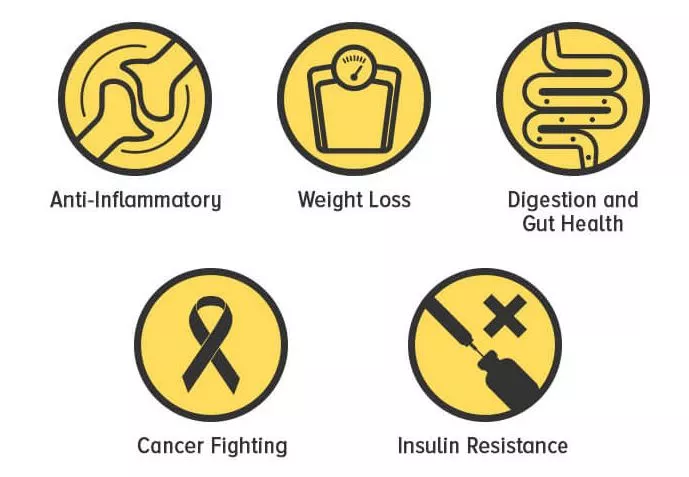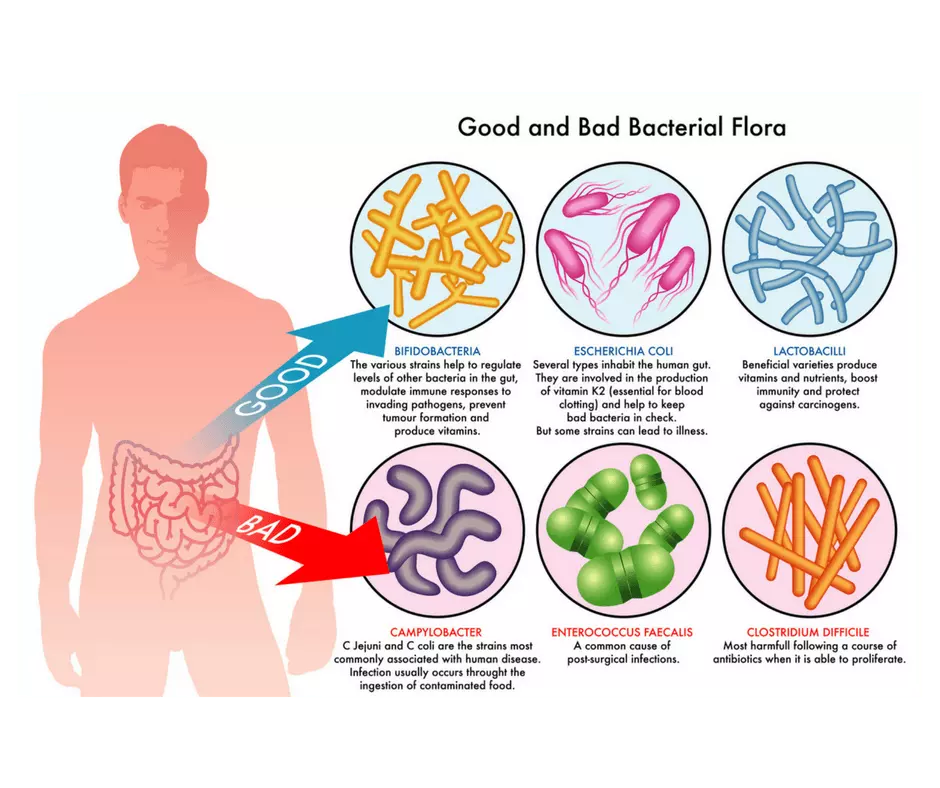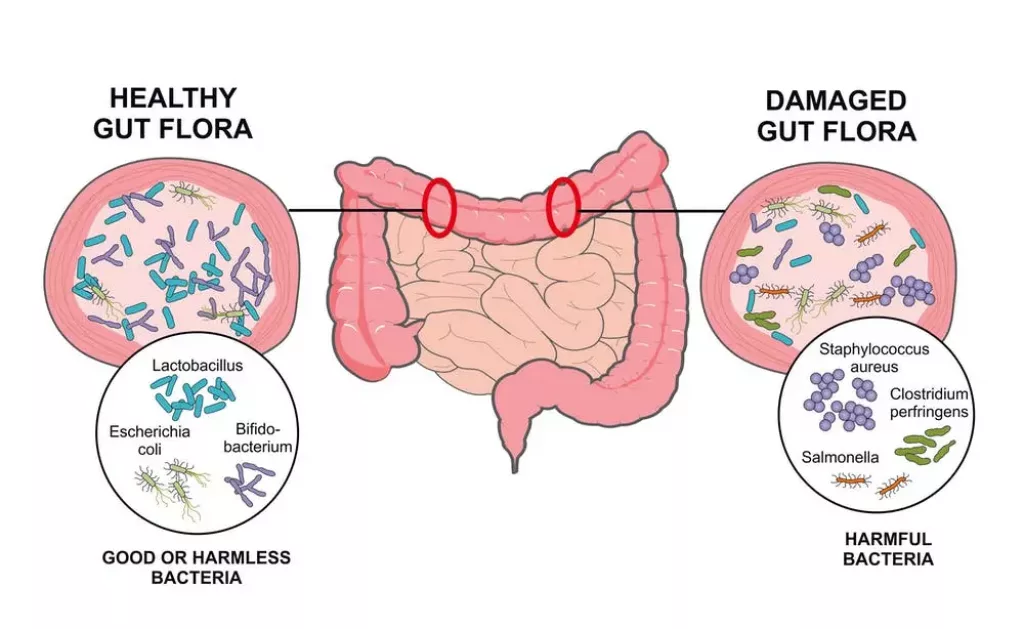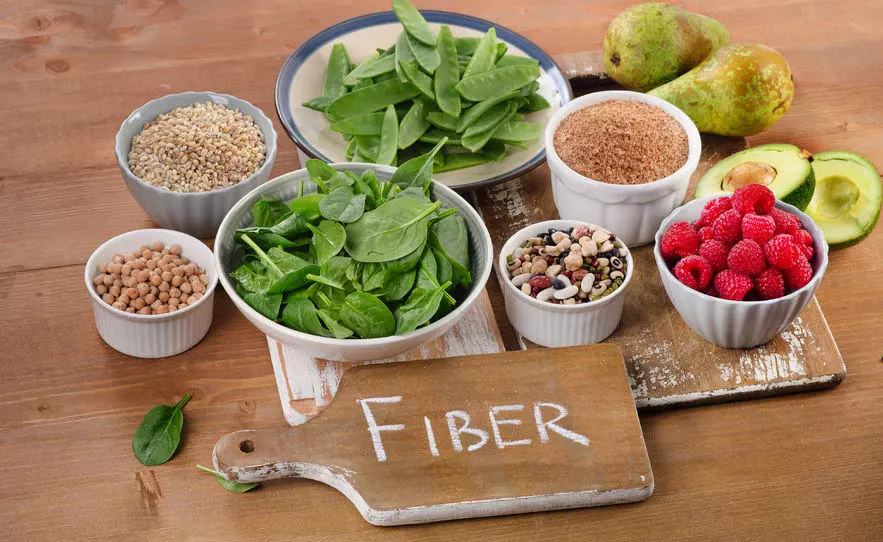Butyrate is becoming a household word in the fitness and wellbeing community, as more information about its advantages to the human body is becoming available. People who desire to reap the beneficial effects of butyrate may be asking how they might raise their butyrate levels.
You may undoubtedly increase your inner butyrate levels by taking supplements and eating more specialized meals. Continue reading if you want to learn everything there is to know about ✅Butyrate Foods.
What is Butyrate?

Butyrate is a fatty acid (SCFA) generated in the colon by the microbiome. It’s created in the gut by bacteria fermenting resistant starch. Butyrate levels in the gut that are nutritional support a regulated microbiome, improved gut function, a healthy inflammatory response, and protects the DNA. Butyrate has many advantages on gastrointestinal, digestive, and cellular health.
What Foods Contain Butyrate?
You don’t need to consume meals high in butyrate; instead, you should consume foods that nourish your gut bacteria.
Prebiotics are what they’re called. Dietary fibers are abundant in prebiotic meals. Fruit, vegetables, whole grains, and pulses are what you’re looking for. Your body can’t digest these fibers, so they end up in your gut, where they nourish the healthy bacteria that produce butyrate.
Firmicutes, a subclass of bacteria, are particularly well-known for generating butyrate. It’s not as simple as consuming butyrate-rich meals to increase butyrate production. Because the short-chain fatty acid may be absorbed in the small intestine and stomach, butyrate will not travel to the colon, where it supports and maintains the gut lining.
Butyrate-boosting foods include the following:
- Almond
- Apple
- Barley
- Chickpeas (Bengal Gram)
- Garlic
- Kiwifruit
- Maize
- Soy
Butyric acid is abundant in butter, making it one of the best sources. As sodium butyrate, it’s also available as a nutritional supplement. However, increasing dietary fiber consumption can aid in increasing butyric acid levels in the gut. The bacteria in the gut primarily feed on resistant carbohydrates that the body is unable to digest. Pectin, found in many fruits, and inulin are two good sources of resistant starches.
You do not need to consume additional butter or buy a supplement such as sodium butyrate. On the other hand, prebiotics is an effective and safe strategy to boost butyrate-producing bacteria and other helpful bacteria.
Food can help you improve your gut bacteria and increase butyrate production, which is beneficial for digestion.
Health Benefits of Butyrate

Butyrate is produced in the human body in lower amounts than other short-chain fatty acids, yet it offers numerous health benefits. Butyrate is required for general gut health and also for the energy production of some gut cells. It can also aid with blood sugar and cholesterol levels, as well as plugging a leaky gut.
👉 It Provides Energy to Your Gut Cells

Colonocytes, the cells that make up your gut lining, use butyrate as their primary energy source. Unlike many other cells in the body that rely on sugar (glucose) for energy, the cells that line the gut (colonocytes) primarily rely on butyrate.
These cells wouldn’t be able to work efficiently if they didn’t have butyrate. Butyrate provides fuel to colonocytes, which as a result, helps to maintain the perfect oxygen-free environment for significant gut bacteria. Inflammation is reduced, gut cells are healthy, and gut microbes are pleased.
👉 Uses Antioxidants to Your Advantage
Butyrate protects your cells from hazardous substances, ensuring that your gut remains healthy and free of sickness. Free radicals are the byproducts of chemical processes in the human body. Antioxidants, on the other hand, are the body’s natural defense mechanism.
Free radicals in great numbers cause harm and exhaust the body’s repair mechanisms. The colon, often known as the big intestine, is a waste storage facility. Glutathione, an antioxidant generated in the body’s cells that neutralizes free radicals in the gut, has been demonstrated to rise with higher butyrate levels.
Because free radicals are associated with inflammation and a variety of ailments, this is a positive thing. Because of its secondary antioxidant activities, increased butyrate synthesis could help colonocytes improve their barrier function. Bowel cancer, irritable bowel syndrome (IBS), and inflammatory bowel disease (IBD)are all reduced.
👉 Reduces Inflammation in the Intestines

Butyrate has anti-cancer and anti-inflammatory properties in the gut. If there are any alterations at the mucosal surface in contact with the microbiota, the gut lining sustains a low degree of inflammation.
The minimum level of inflammation is strictly regulated, but if it is interrupted, it can result in oxidative damage or, over time, cancer. Butyrate inhibits the action of various pro-inflammatory chemicals in your body.
Butyrate’s anti-inflammatory action decreases oxidative stress and protects against free radical damage. As a result, your diet can have a significant impact on both butyrate production and intestinal inflammation. Because fiber feeds your butyrate-producing bacteria, a high-fiber diet is perfect for butyrate generation. Inflammation is reduced when there is more butyrate in the body.
👉 Helps to Combat Cancer
Butyrate helps keep your gut environment constant and is a component of the cancer-prevention action of dietary fiber. Colorectal cancer, known as bowel cancer, is a significant cause of death in the Western world, and our diet is primarily to blame. A low-fiber diet has an effect on the bacteria in your gut. Your colonocytes require butyrate for energy, and they cannot function without it.
Cells linked to tumor progression might thrive if the cells lining your intestines are unable to work. These send out inflammatory signals, which can contribute to tumor growth. As a result, a low dietary fiber diet results in less butyrate generation, which is a risk factor for colon cancer. Butyrate also inhibits histone deacetylase.
Most cancers produce the enzyme histone deacetylase. Butyrate acts as an inhibitor, causing cells to die, which is known as apoptosis. So, it has the potential to halt the development of cancer cells completely.
👉 Put a Stop to a Leaking Intestine
Butyrate is essential for the optimal development and vitality of your gut lining. That’s all there is to it. The intestinal lining serves as a barrier. Minerals and vitamins are selectively allowed to exit the gut, enter the blood, and travel to where they’re required.
It also keeps toxins, infections, and food molecules out of your bloodstream, preventing you from being ill. Doctors and scientists refer to the condition as intestinal permeability. Small gaps called tight junctions relax whenever the barrier is healthy, enabling nutrients and water to flow through.
Simple habits, such as frequent snacking, prevent these close connections from shutting between meals, allowing germs and other unwelcome items to enter the system. It is a sign of a leaky gut.
The butyrate produced by the gut microorganisms, as a result of eating fiber, supplies the fuel that the gut lining cells require. As a result, the stability of the intestinal tract is preserved, which in turn can avoid a leaky gut.
👉 Obesity & Diabetes Prevention
Butyrate may help people with obesity and type 2 diabetes by enhancing the synthesis of gut hormones that regulate blood glucose levels. The pancreas releases insulin as blood sugar levels rise. When insulin levels (& blood sugar levels) in the blood are too low, this organ releases glucagon, allowing the liver to transfer glucose into the bloodstream.
These hormones work together to keep the blood sugar levels in check. Insulin tells the body’s muscles and fats to take in excess glucose when blood sugar levels are too high; hence these hormones are vital for diabetes and obesity.
The release of these gut hormones is increased when short-chain fatty acids, such as butyrate, are produced in the colon, indicating possible benefits for controlling blood sugar levels and reducing weight gain.
👉 Keeps Your Mind Safe
Butyrate has a lot of potential for supporting brain health, in addition to its gastrointestinal functions. Butyrate, which is produced by bacteria in your colon, serves a variety of biological purposes. These activities are also linked to neuroprotective benefits for the nervous system and brain.
Butyrate inhibits several processes related to advancing diseases such as Parkinson’s, Alzheimer’s, autism, and stroke. As a result, butyrate may impact brain health, and changing one’s diet could be a simple method to improve disease outcomes.
It’s safe and straightforward to increase your butyrate production through your diet. It may become a therapy option for brain illnesses in the future. More significantly, expanding the butyrate synthesis today can help you in a variety of ways.
👉 Fiber Can Help To Increase Butyrate Levels
Because it promotes the butyrate-producing bacteria in your colon to thrive, a high fiber diet can help you produce more butyrate. The ability to manufacture butyrate is well-known among members of the Firmicutes phylum. Foods that contain prebiotics are prominent with gut bacteria and the microbiome in general.

Vegetables, fruits, pulses, and whole grains are examples of prebiotic foods that directly support your microbiome. They contain dietary fiber, which your gut bacteria convert into organic substances such as butyrate. High-fat, low-carbohydrate diets can disrupt butyrate production. Fiber, not animal protein, is what your gut bacteria eat. As a result, a high-fiber diet is the most excellent approach to maximize butyrate production.
What is Butyric Acid? | Does it Boost Your Health?
Butyric acid is an essential fatty acid created by the beneficial bacteria in the stomach as dietary fiber is broken down. Butyric acid is naturally found in animal fats and vegetable oils; however, the amount created in the gut is more significant than dietary sources.
Butyric acid is some kind of short-chain fatty acid (SCFA) that, together with acetic and propionic acid, is the most abundant SCFAs in the gut. When gut-friendly bacteria break down dietary fiber, these saturated fatty acids make up 90-95 percent of the SCFAs generated in the gut.
Butyric acid is well-known for its capacity to facilitate digestive health, relieve inflammation, reduce illness risk, and improve general health. It regulates blood sugar & cholesterol levels and gives colon cells the energy they require to carry out their regular duties.
Is Butyrate & Butyric Acid the Same Thing?
Butyric acid and butyrate are the same chemicals in different forms. Butyric acid is a type of carbohydrate that can be found in foods and supplements. Butanoic acid and butyrate are two other names for butyric acid. It’s a four-carbon short-chain fatty acid present in butter and other dairy products.
When butter gets rancid, it emits an unpleasant odor of butyric acid, which is harsh, fermented, and relatively unpleasant. Butyric acid has a pH that is low enough to cause gastrointestinal distress. When combined with an alkali, though, it becomes more than just a pleasant companion. When an acid & a base are combined, salt plus water is formed.
Humans now have butyrate, a buffered version of butyric acid rather than butyric acid. Although the terms are similar and might be used interchangeably, they are not interchangeable.
Does Butyrate Improve Your Health?
Butyrate is a therapeutic postbiotic that is gaining popularity due to its remarkable effects on digestive health, such as reducing bloating, speeding up transit time, lowering inflammation, and more.

You can raise your butyrate levels by a mix of food and supplementation if you have digestive symptoms or disease. Butyrate is, in a nutshell, pretty cool. Your gut bacteria produce butyrate from foods that you can’t digest. As a result, it gives several health benefits to your body.
The fiber in your diet will help you produce more butyrate, and your gut microorganisms will thank you for it. Increasing your daily dietary fiber intake is the most excellent strategy to raise this fatty acid in your system.
The levels are minimal, however, when compared to what is produced when your gut’s friendly bacteria break down and digest dietary fiber. Gut bacteria produce butyrate from nutrients that are impossible to digest, providing the body with various health benefits.
🌟 Butyrate Foods FAQ
✅Is butyric acid bad for you?
Butyric acid is well-known for supporting digestive health, decreasing inflammation, reducing disease risk, and improving general health. It controls blood sugar and cholesterol levels and supplies colon cells with the energy required to carry out their usual tasks.
✅Where is butyrate found?
Butyrate is a significant short-chain fatty acid generated when gut bacteria ferment dietary fibers. Dietary fibers can be found in legumes (beans, peas, and soybeans), fruits, nuts, cereals, and whole grains. Butter and cheese both contain butyrate.
✅What bacteria produce butyrate?
The main butyrate-producing bacteria are anaerobes, including the Bacteroidetes and Clostridia, and the low O2 once.
✅Is butyrate anti-inflammatory?
Yes. Studies have shown that butyrate is anti-inflammatory and even can decrease obesity rates in mice fed with high-fat diets.
Final Verdict:
Butyrate is a therapeutic postbiotic that you can raise your levels of in various ways. What’s great about butyrate is that it has so many different benefits to the body, from helping with digestion, bloating, and gas, lowering inflammation, speeding up transit time, and more!
If you have any digestive problems or diseases like IBS or Crohn’s Disease, raising your butyrate level might help quite a bit. You can do this through diet (fiber) and supplementation if needed. So don’t just take our word for it–start adding some fiber-rich foods into your diet today!








